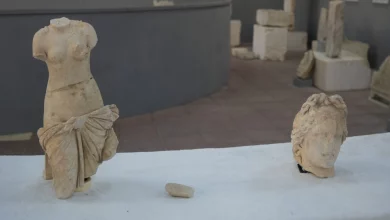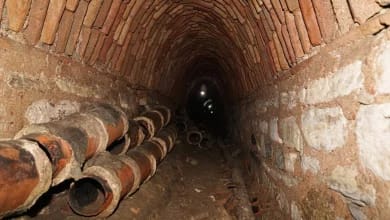Protocol seat unearthed in ancient theater at Türkiye’s Apollonia ad Rhyndacum
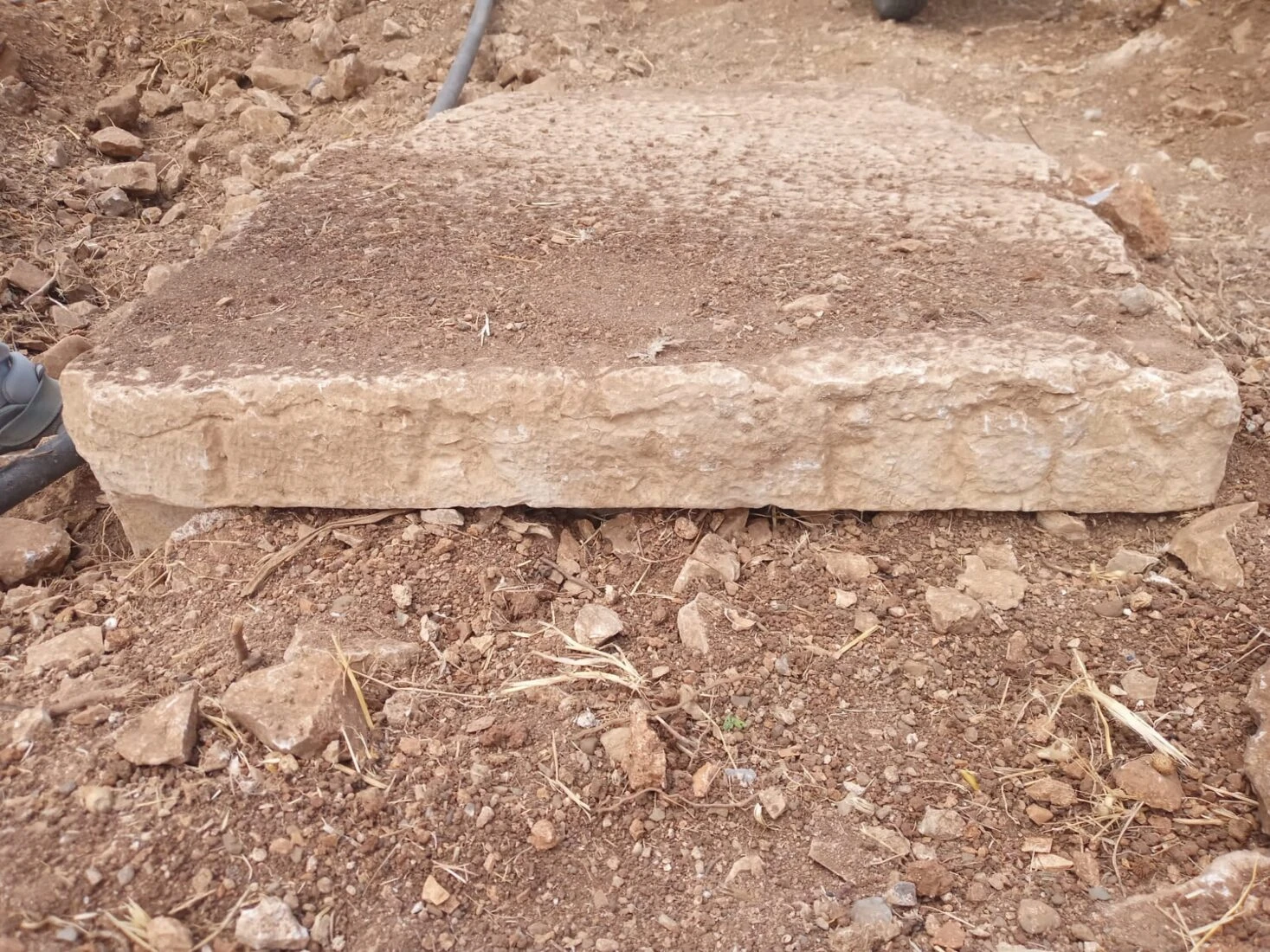
In one of Türkiye’s most scenic villages, Golyazi in Bursa’s Nilufer district, an ancient theater has been partially uncovered in the Apollonia ad Rhyndacum excavation, shedding light on Hellenistic period lifestyles and reserved seating customs.
Archaeologists recently discovered a designated seat marked for a specific individual. Believed to be a VIP, which emphasizes the presence of exclusive seating even in ancient times.
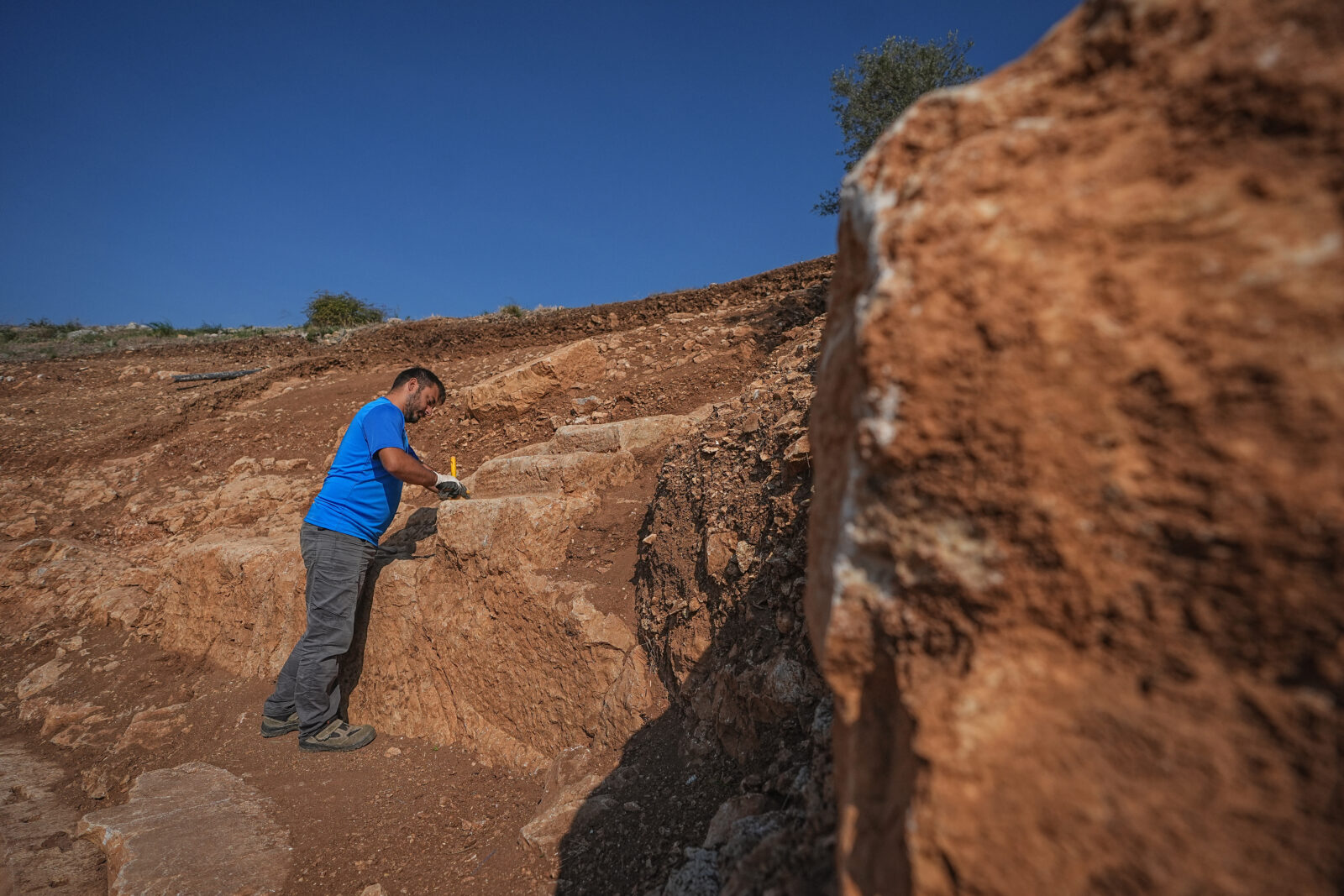
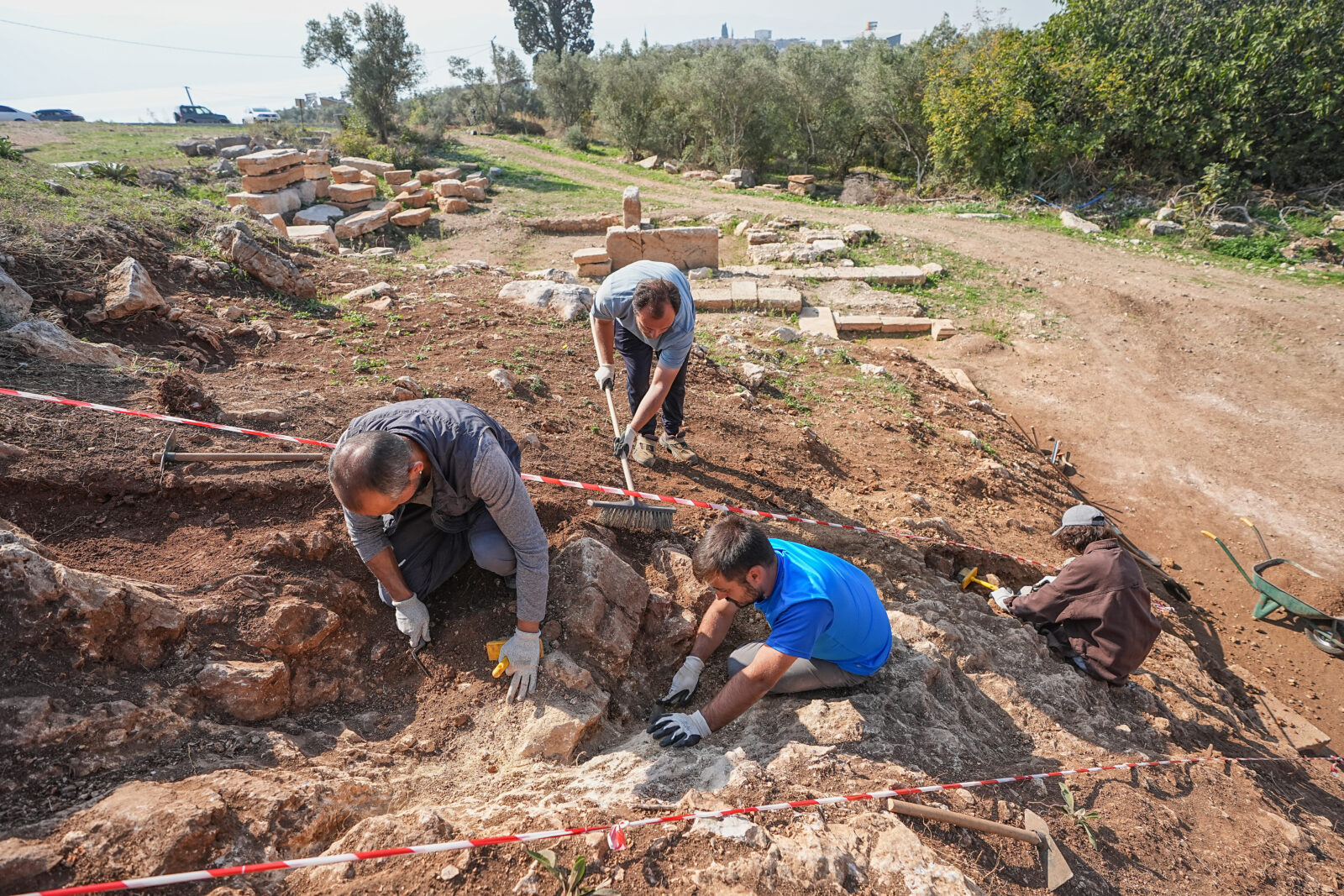
Excavations led by Bursa Uludag University continue on site
This archaeological project, initiated in August 2021 under the guidance of Bursa Uludag University (BUU) and with the support of the Nilufer Municipality, is conducted with permission from the Ministry of Culture and Tourism and overseen by the Bursa Museum Directorate.
The theater, built on the slopes of Zambaktepe with panoramic views of Lake Uluabat, is estimated to have had a capacity for around 6,000 spectators. Alongside seating areas reminiscent of modern VIP boxes, the theater structure dates back to the late fourth century B.C., showcasing architectural elements from both the Hellenistic and Roman periods.
Professor Derya Sahin, who heads the excavation and is a faculty member in BUU’s Archaeology Department, shared insights on the unique findings, including the “east parodos” (a side entrance near the orchestra pit), which has been partially revealed in the ongoing digs.
“Last year, we unearthed the orchestra area and the seating tiers, partially exposing the west parodos. This year, we are further exploring both the west parodos and the cavea (the seating area),” said Sahin.
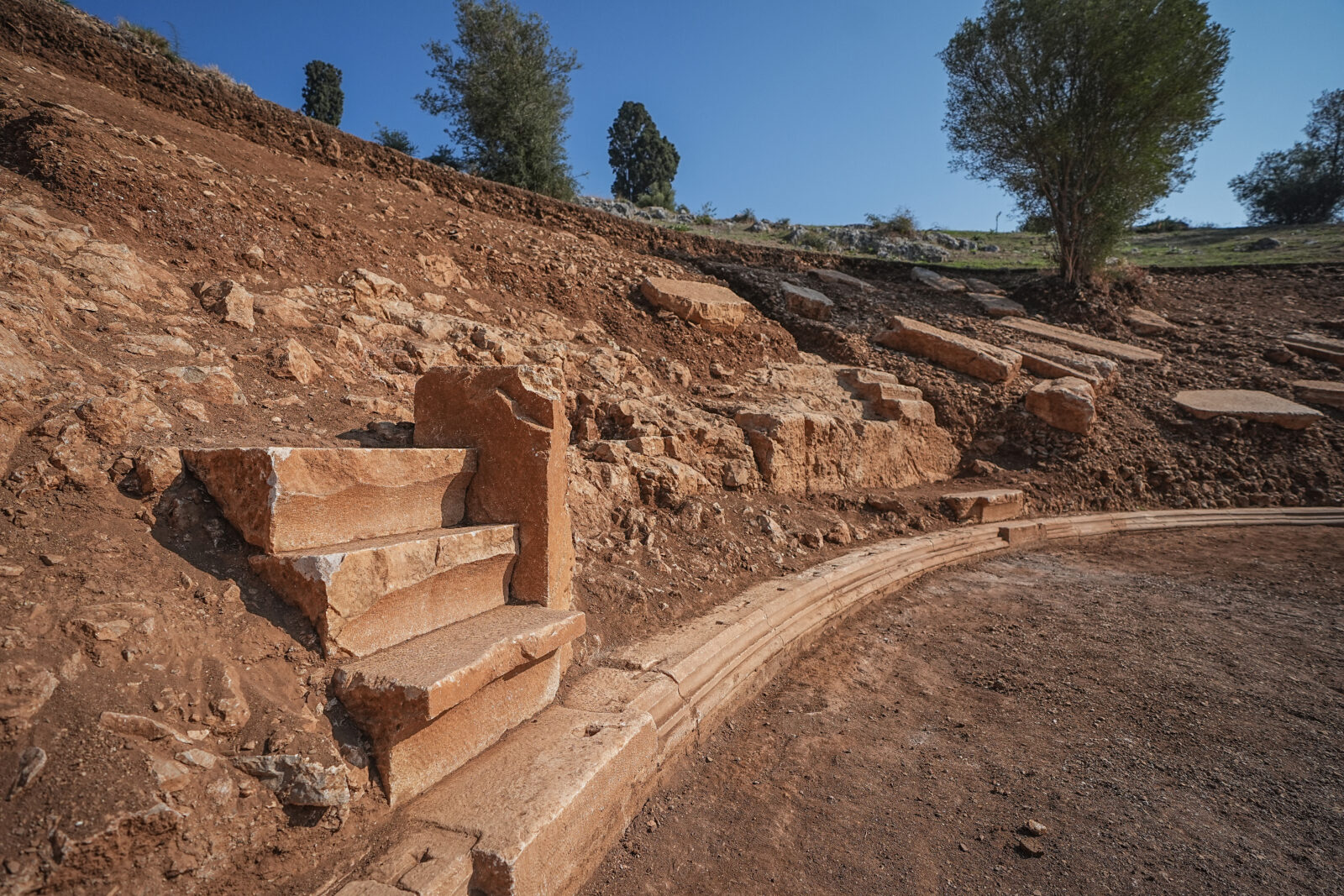
Glimpse into VIP culture of antiquity
According to professor Sahin, the theater also features “prohedria,” or seating reserved for elite individuals. The hierarchy is evident from seating arrangements: the VIPs sat in the front row, while the least important viewers, including servants, sat at the back.
“In different ancient cities, we have examples of marked seating, but here we found a unique inscribed seat, likely reserved for an individual with a name akin to ‘Aitroy,’ although missing pieces prevent full deciphering”. She added.
This discovery highlights the prevalence of reserved seating in ancient theaters and its significance in the social order of the time.
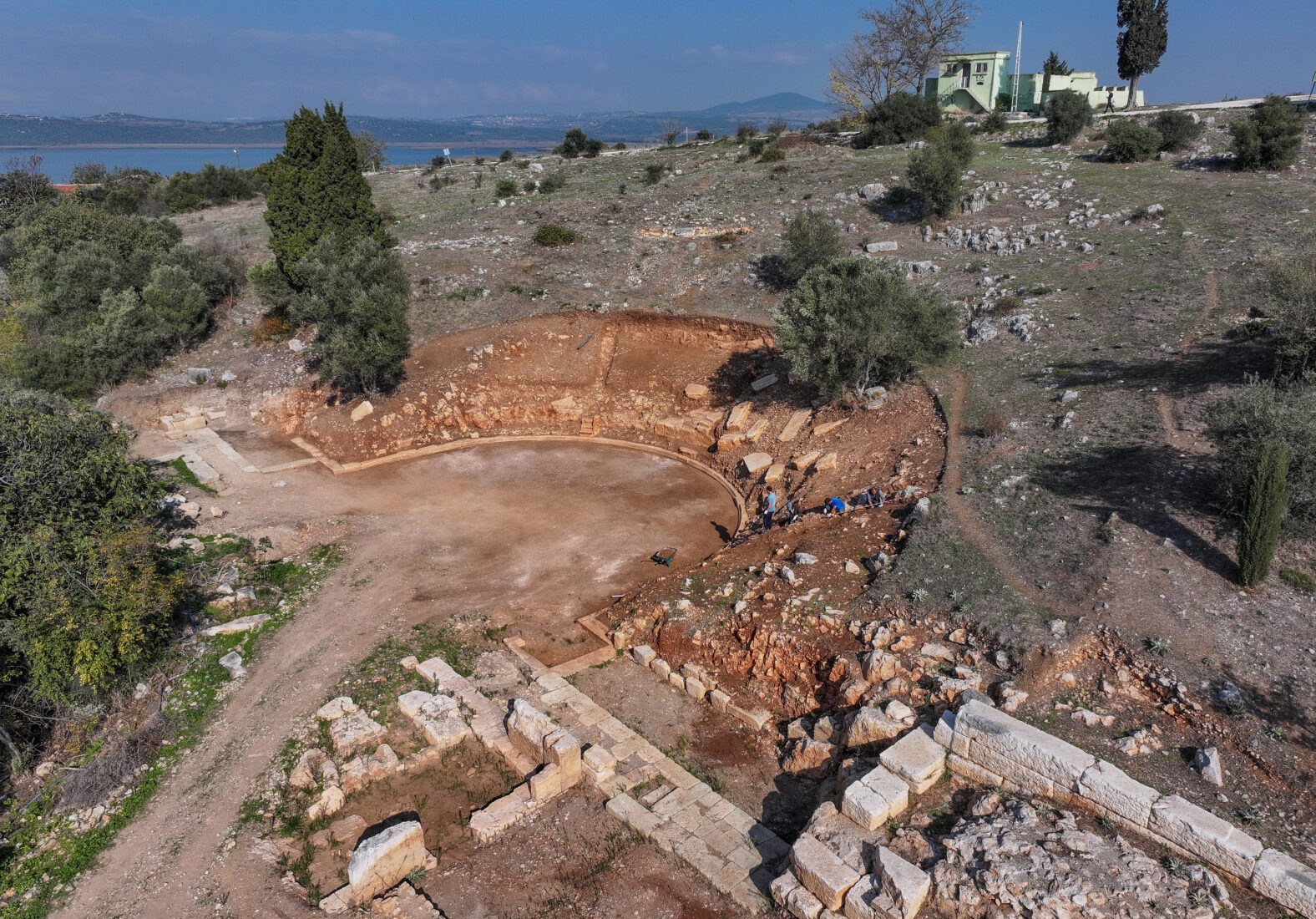
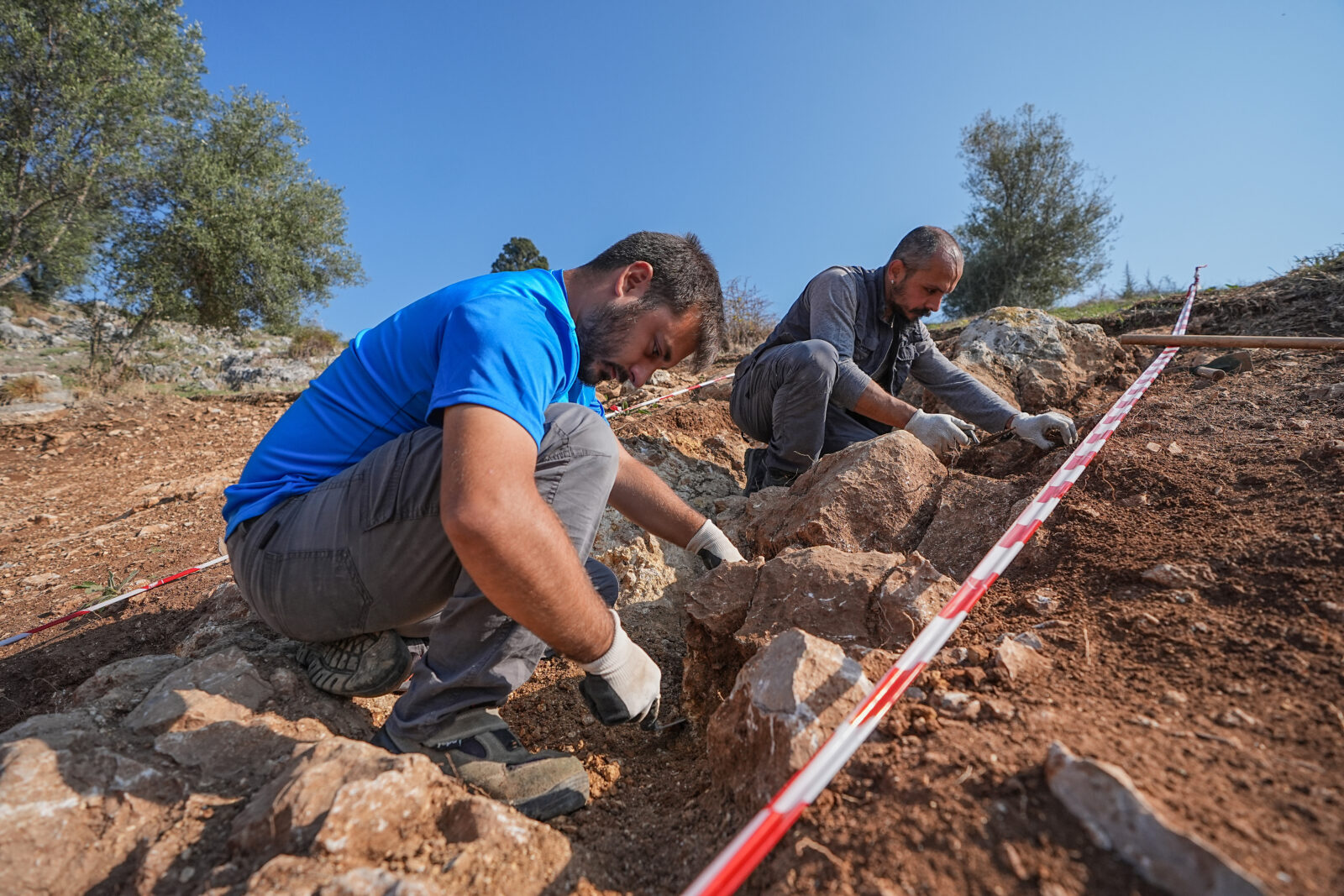
Roman-era gladiator battles and evolution of ancient theater use
Initially constructed as a venue for tragic performances and works by playwrights such as Euripides. Sophocles and Aeschylus, the theater’s function evolved during the Roman era to host gladiator games and animal fights, prompting changes in theater architecture.
“For security, the orchestra area was encircled by a parapet wall,” explained Sahin.
Complex architectural techniques reveal advanced building knowledge
Sahin detailed the intricacies of the theater’s construction, including the use of natural stone from the nearby site, metal connectors, and intricate stonework designed to withstand the passage of time.
“The strategic choice of location, particularly near water, reflects Hellenistic preferences. The theater was built on a hillside, aligning with Hellenistic theater design trends,” Sahin noted.
The project has also uncovered ceramic fragments, decorative reliefs, and metal items dating back to the Classical, Hellenistic, and Roman periods, revealing the area’s long-standing significance.
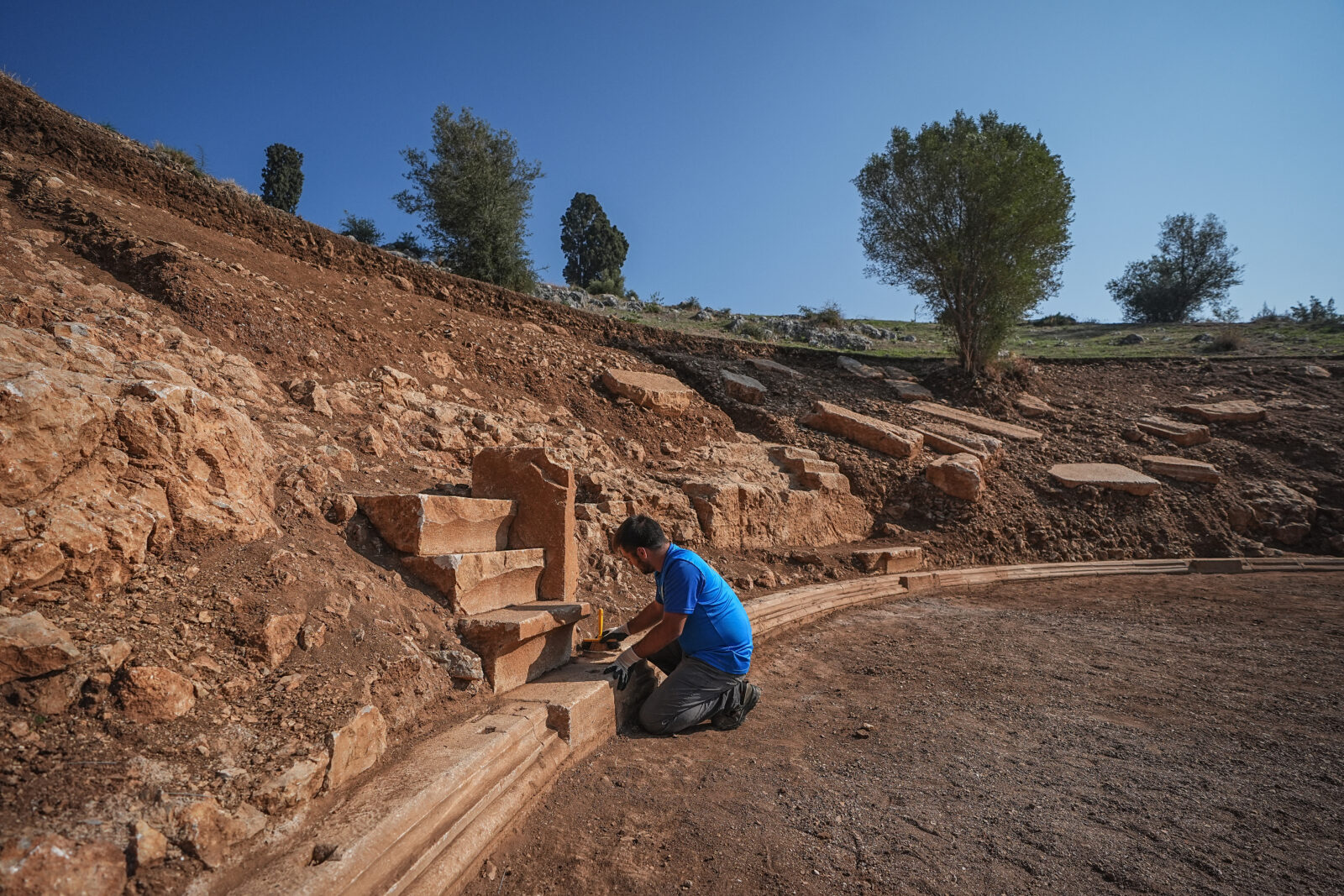
Preservation efforts underway despite weather challenges
Among the site’s artifacts is an inscription attributed to Emperor Hadrian, found along the fortified walls. Sahin emphasized that the excavation team, consisting of experts, restorers, anthropologists, architects, and laborers. Will continue their work as weather permits.
The discovery of a protocol seat in Golyazi’s ancient theater. Not only adds to the cultural understanding of Apollonia ad Rhyndacum. But also brings to life the social structures and exclusive customs of ancient communities. This ongoing project will likely offer further insights into Türkiye’s historical richness.


